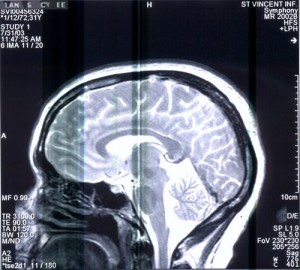 Traumatic brain injury, or TBI, afflicts two million adults and children each year in the United States. TBI is also a leading cause of disability and death among children. Despite these grim statistics, the FDA has not been able to approve a new treatment for these devastating injuries in over 30 years. However, a new phase III clinical trial headed by Emory University is attempting to develop progesterone treatments for brain injuries. Preliminary findings have been exciting.
Traumatic brain injury, or TBI, afflicts two million adults and children each year in the United States. TBI is also a leading cause of disability and death among children. Despite these grim statistics, the FDA has not been able to approve a new treatment for these devastating injuries in over 30 years. However, a new phase III clinical trial headed by Emory University is attempting to develop progesterone treatments for brain injuries. Preliminary findings have been exciting.
Previous research tested progesterone on 100 patients. The rate of death was significantly higher, 30 percent, for the placebo group than for the group given progesterone, of which 13 percent died from their head injuries. Progesterone has been shown as a safe treatment for other conditions and preliminary studies involving TBI patients show no harmful side effects.
Researchers, hopeful at the outcome of the preliminary study, have implemented a larger, Phase III study that will be conducted over the next three to six years. In this study, researchers will collect data from over 1,100 patients across 17 medical centers. Due to the emergency nature of traumatic head injuries, the study qualifies for what is known as “Exception from Informed Consent” or EFIC.
The success of the progesterone treatment seems to depend on how quickly it can be given in the emergency room. In response for the need to research and develop better emergency room care treatments, Congress passed EFIC, giving researchers the ability to enroll patients in a research study without their consent. EFIC can only be used if certain criteria are met. These criteria include the presence of a life-threatening condition, unsatisfactory current treatments, the potential for direct benefit to the patient, and, of course, the inability to obtain informed consent.
A traumatic brain injury occurs when the brain forcefully hits against the wall of the skull. Such a blow can tear tissue, nerves, and blood vessels. The injuries cause the brain to swell like any other bruised tissue. However, such swelling is particularly dangerous for the fragile brain within the tight confines of the skull.
Progesterone began to be considered for TBI when researchers noticed that rats with traumatic brain injury recovered much more quickly when given the hormone. Progesterone is already present in human brains and is thought to protect neurons from damage. Studies also indicate that progesterone plays a large role in brain development.
Shaken baby syndrome is a form of traumatic brain injury. Experts estimate that 15 percent of all deaths in children are related to shaken baby syndrome. Babies who are six months old are at the greatest risk of being shaken by frustrated caregivers. If progesterone is approved for the widespread treatment of TBI, it could salvage the young lives lost to death and disability each year.
If you or someone you love suffered traumatic brain injury from violence or other preventable causes, contact our office to discuss your case. We will provide a free evaluation and help you make important decision about pursuing compensation for the injuries.


